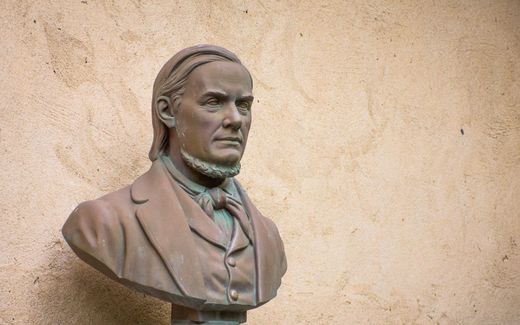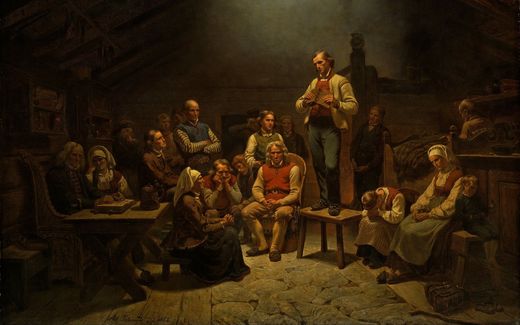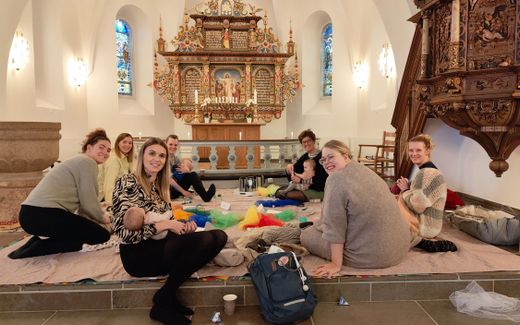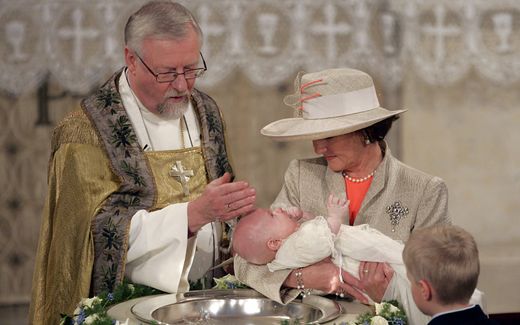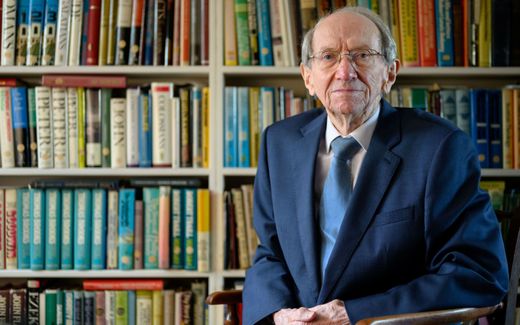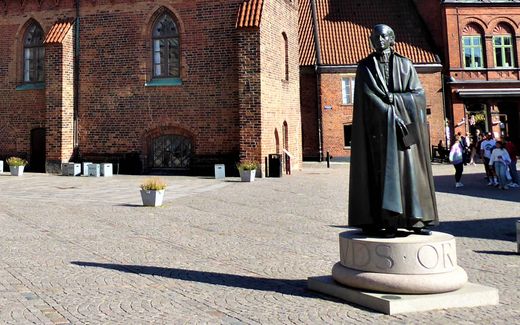Norwegian revival preacher gets revisited among Gen Zers
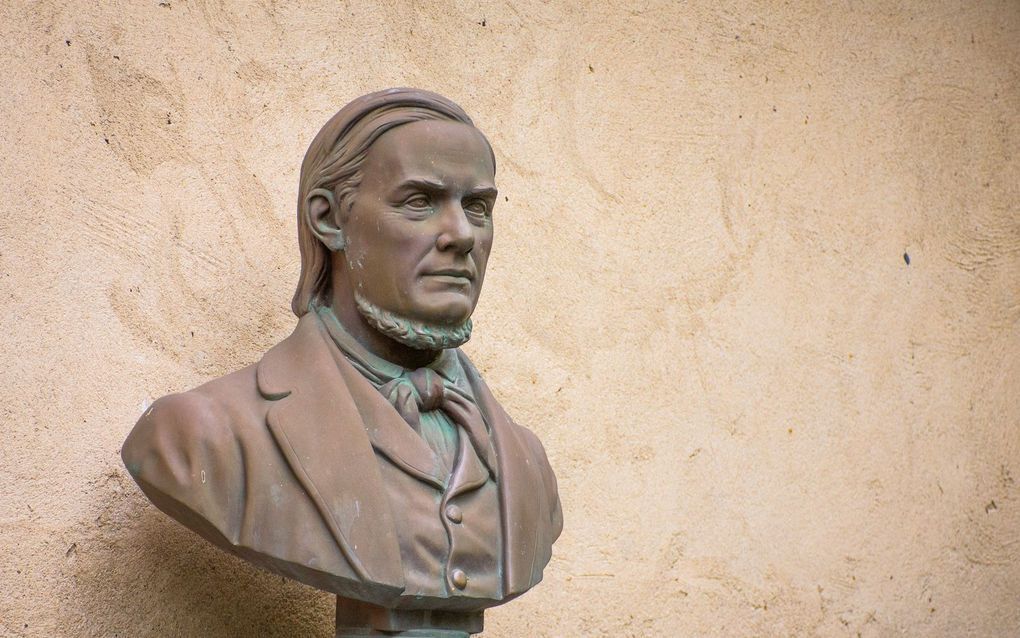
A sculpture of Hans Nielsen Hauge. Photo Flickr, James Walsh
Northern Europe
Hans Nielsen Hauge brought both the gospel and wealth to Norway. But for more than 200 years, his heritage was only known to his own country.
Stay up to date with Christian news in Europe? Sign up for CNE's newsletter.
Now, an American pastor and some Norwegian professors are reviving his teachings, and they believe that Gen Z can learn much from what he had to say about prayer and hard work. Some of those teachings have been recently translated into English.
Over two hundred years ago, Norway said goodbye to Hans Nielsen Hauge, who eventually led a spiritual and industrial awakening throughout Norway.
Although Hauge was only 52 at the time of his death, he had written 33 books within an eighteen-year period. One of these is a book on prayers that the American Brian Lunn has translated into English.
Lunn became interested in Hauge's writings some years ago. He serves the Free Lutherland church in Minnesota, United States. He discovered that the Norwegian preacher is still well-known within his branch of the American Lutheran church.
Lunn decided to learn Norwegian so that he could better understand Hauge. He hired a tutor to help him along the journey. He started by using a book on learning Norwegian from the late 1800s.
Between learning through books and from his tutor, it took him three years to grasp the language so he could write the first draft from Hauge's writings. It took more time to get better at what he learned, he says. Another difficulty in the writing process involved getting hold of Hauge's books, as many were out of print and hard to find.
Still, Lunn managed to find the books, and he combined several themes to write a compilation entitled, "A Godly Contemplation: Prayers and Meditations". He also worked with two other translators on writing his book. Their collaboration led to a series of Hauge's contemplations and prayers that readers can follow for each day of the week.
Why should today's generation read Hauge?
Lunn says that Hauge's writings are unpolished yet down-to-earth and full of life. "He was always moving and talking to people, even during his lunch breaks," he says. "That sort of activity and zeal is something the American Church can learn from."
One of the unique characteristics of his writings, Lunn explains, centres around the love of God. Hauge had a powerful encounter with God during his 20s. Hauge first experienced that love for God after a years-long struggle to assure his salvation. In a writing dated 1816, Hauge writes extensively about having a burning, inward love for God and his neighbour, as well as compassion for the lost.
"I think it's love that drove him to work as hard as he did," he says. In addition to preaching about the love of God, Lunn says that Hauge's life showed that God cannot be put in a box.

As a layman, Lunn says his preaching was not "state-sponsored" as in the case of previous preachers within the national Lutheran Church. Ministers who wanted to preach in a specific place needed special permission from the national Church. Hauge, however, allowed himself to preach wherever he was invited, which later led to many arrests and time in prison. Additionally, he encouraged other lay people, including women, to talk about Jesus with others in private conversations and small-group gatherings.
"The Bible was his main source of material. His message wasn't new. But his message was presented differently," he says. "Laypeople have a role to play, and he was good at getting people to use their gifts well."
Hauge's vision can still be found in Norway today. It is interesting that his heritage is not only spiritual but also economic. Look, for instance, at the Hauge School of Management, which is part of the Christian-based NLA University College. Students can work toward a bachelor's degree in Business and Administration or Innovation, marketing, and leadership. Most classes are currently taught in Norwegian, except for one semester in Business Administration, Leadership, and Entrepreneurship, which is geared toward exchange students.
Magne Supphellen, the school's founder and professor, teaches marketing, ethics, and sustainability. As a new generation takes over the workplace, he says the school aims to apply Hauge's principles of working with a purpose. Hauge went on to establish over 30 companies and make significant contributions in salt mining and many other industries. Even now, his values are revisited as students complete their coursework.
"He had a new interest in using business development to make the world a better place. That's something you find in Hauge's work. He did this as a means to a higher purpose."
What makes the school unique compared to other business schools? Interaction remains a key part of the school's curriculum. Supphellen says that when he teaches his classes on marketing, ethics, and sustainability, he tries to get students to interact with one another through group activities and discussing various cases.
The school also integrates a mentorship programme into its curriculum. Students are assigned mentors who meet with them regularly and are encouraged to pray for their assigned students.
At least 40 per cent of the student body identify as Christians. Some are also Muslims who feel it is better to have a religious education. "It's rare to have students reject someone praying for them," he says. Cathrine Borgen, who has developed the curriculum for the school, says that Hauge desired to find the potential in all those he trained and motivated his employees to apply their gifts for the greater good.
"It's how he taught, how he met people," she says.
One of the classes she has designed and taught involves presenting ethical dilemmas to students. Borgen believes it is important for students to come up with different perspectives on various ethical issues they might encounter in their business or personal lives. She gives them a theoretical framework and then asks them to reflect on possible actions regarding a specific ethical dilemma. They also discuss various cases, get feedback from the group, and write a reflection afterwards.
"The course makes them self-aware as human beings with a great responsibility to society. We have to make them realise that sometimes they are not acting in accordance with their values. We believe that if they are challenged on their values, they will want to contribute to society."
Magne Supphellen says that many of the 1,000 students who attend the school start their own companies or want to work for non-profit organisations, as some see a greater purpose in working there. Others get jobs in the corporate sector, and it is important to have graduates working there too, Borgen explains.
Although the school belongs to a larger Christian institution, it remains 70 per cent state-subsidised. While there are limitations on what a state-funded school can do, Borgen emphasises that Hauge's religious values are still reaching students.
"We teach, but we don't preach as Hauge," she says.
Related Articles


